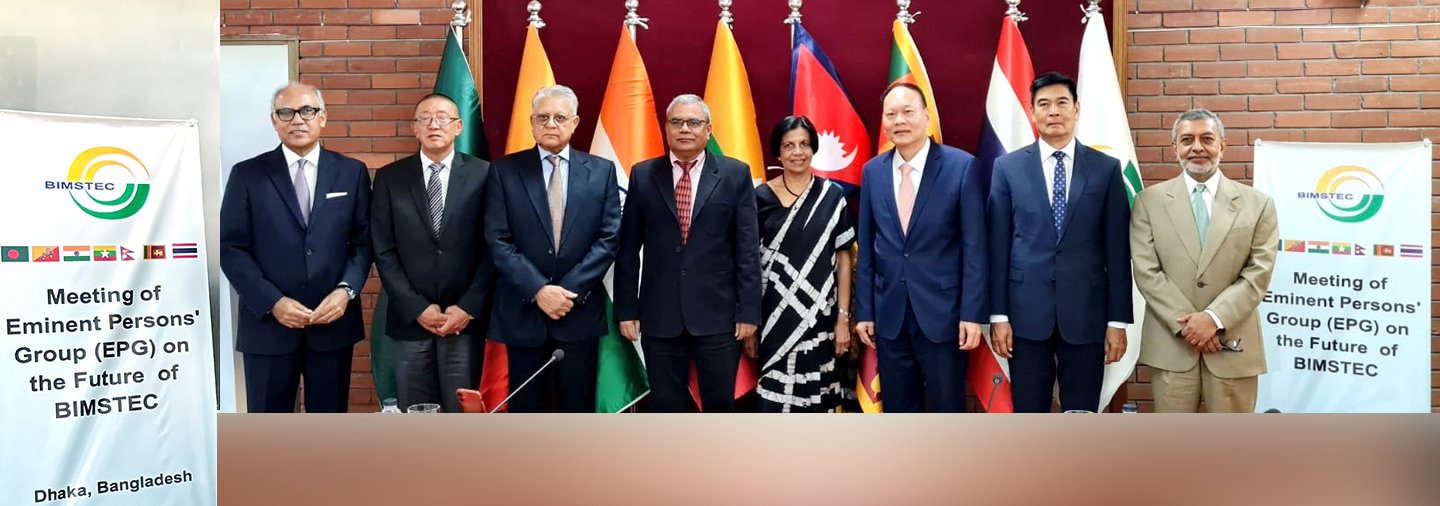

The Fourth Meeting of the Eminent Persons’ Group (EPG) on Future Directions of the BIMSTEC was held on 25-27 June 2024 at the BIMSTEC Secretariat in Dhaka, Bangladesh.
The Meeting was chaired by Dr. Soonthorn Chaiyindeepum, member of the EPG from Thailand, which is the current Chair of the BIMSTEC. The members of EPG from all BIMSTEC member States joinedthe Meeting. The BIMSTEC Secretariat, led by H.E. Indra Mani Pandey, Secretary General, facilitated the Meeting and assisted the EPG in its deliberations.
During the three-day long Meeting, the EPG engaged in discussions on the current status of regional cooperation within the BIMSTEC and its institutional mechanisms. Furthermore, the EPG held interactions with the Ex-Secretary General of BIMSTEC, members of the BIMSTEC Network of Policy Think Tanks (BNPTT) and the representatives of trade and business organisations of BIMSTEC member States.
The EPG has been entrusted with the task of providing guidance to the member State to reform, revitalise and repurpose the BIMSTEC. The establishment of the EPG signifies commitment of the BIMSTECmember States to take necessary steps to foster and deepen regional cooperation to realise the goals of a secure, developed and prosperous Bay of Bengal region. The EPG is committed to submit its Report to the BIMSTEC Leaders at the Sixth BIMSTEC Summit.
The Fifth Meeting of the Eminent Persons’ Group on Future Directions of BIMSTEC will be held on 16-18 July 2004; the first, second and third Meetings were held in Dhaka on 25 January 2024, 11-12 March 2024 and 12-13 May 2024 respectively.
BIMSTEC comprises 7 countries of the Bay of Bengal region: Bangladesh, Bhutan, India, Myanmar, Nepal, Sri Lanka and Thailand. It pursues regional cooperation in the following 7 sectors: Agriculture and Food Security; Connectivity; Environment and Climate Change; People to People Contact; Science, Technology and Innovation; Security; and Trade, Investment and Development.Each member State is designated as the Lead State in one of 7 sectors of cooperation.